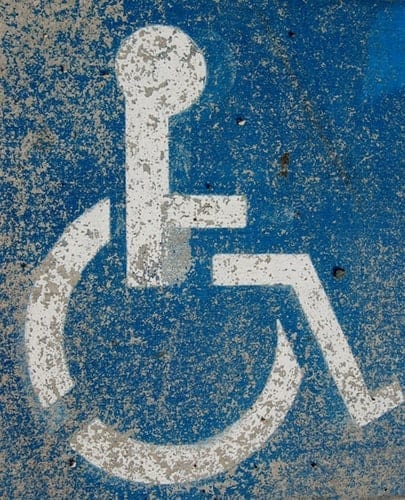Lyft was recently hit with a class-action lawsuit filed by Disability Rights Advocates after two people alleged the company discriminated against them by not “making available wheelchair-accessible cars in the San Francisco Bay Area.” Filed in Alameda County Superior Court, the lawsuit goes on to accuse the ride-sharing company of directly violating “the law by not providing an equal and accessible transportation option to all.” In addition, in failing to provide wheelchair access to customers, the lawsuit alleged “Lyft is in violation of the Unruh Civil Rights Act, which guarantees people with disabilities are entitled to full and equal accommodations, and claims the company is in “violation of the California Disabled Persons Act.”
Lyft was recently hit with a class-action lawsuit filed by Disability Rights Advocates after two people alleged the company discriminated against them by not “making available wheelchair-accessible cars in the San Francisco Bay Area.” Filed in Alameda County Superior Court, the lawsuit goes on to accuse the ride-sharing company of directly violating “the law by not providing an equal and accessible transportation option to all.” In addition, in failing to provide wheelchair access to customers, the lawsuit alleged “Lyft is in violation of the Unruh Civil Rights Act, which guarantees people with disabilities are entitled to full and equal accommodations, and claims the company is in “violation of the California Disabled Persons Act.”
In response to the lawsuit, a spokesperson for the company stepped forward with the following statement:
“There is no doubt that those living with disabilities face significant transportation challenges — challenges that have existed for decades. Since Lyft was founded in 2012, we have sought to increase access to transportation around the country for underserved populations, including those living with disabilities. We currently have partnerships and programs in place to provide enhanced WAV access in various parts of the country, and are actively exploring ways to expand them nationwide.”

It’s important to note, however, that Lyft does indeed offer a service specifically for customers with disabilities, known as Access. So why didn’t the plaintiffs in the lawsuit find that service acceptable? Well, according to the lawsuit, Access “is a shame and a completely inadequate substitute for actual accessible transportation.” How does Access work? Well, the way Access works is that “instead of connecting a rider in access mode with an accessible vehicle, Lyft sends the rider a text message with a link to a website listing phone numbers for paratransit, public transportation agencies, and local taxi companies around the country.” It doesn’t function like a ride-share service like Lyft, and that’s why disabled customers aren’t happy with it.
To put simply, Lyft claims to be able to accommodate things like foldable wheelchairs and service animals, but for disabled individuals needing more assistance getting in and out of the wheelchairs and in and out of a car, they’re directed to other services which aren’t always as convenient as a traditional Lyft ride-share service.
The recent lawsuit hopes to change this, though, and called the company’s efforts to accommodate disabled customers laughable and inadequate and pointed out that there are actually “major limitations to public transportation and paratransit for those with mobility disabilities.” As a result of poor accommodations, many disabled people “must use private transportation services to travel from one place to another.”
At the moment the lawsuit is not seeking monetary damages but merely wants equal access to Lyft’s services.
Sources:
Lyft faces discrimination lawsuit
Lyft faces accessibility discrimination lawsuit in San Francisco


Join the conversation!